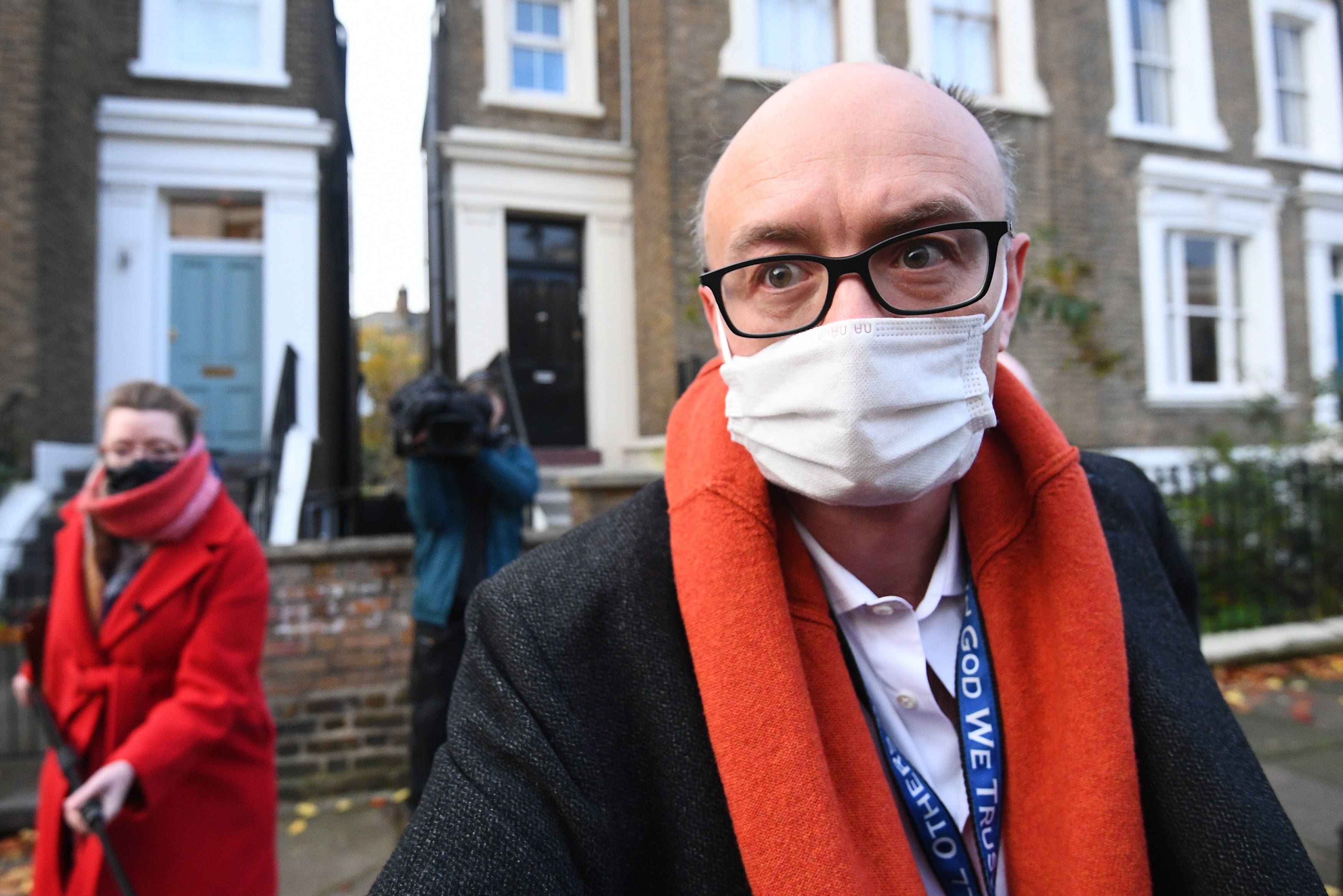Dominic Cummings denies pushing for lucrative Covid contract to be awarded to ‘friends’
‘No thought was given to seeking offers from any other provider,’ Good Law Project claims in legal action

Your support helps us to tell the story
From reproductive rights to climate change to Big Tech, The Independent is on the ground when the story is developing. Whether it's investigating the financials of Elon Musk's pro-Trump PAC or producing our latest documentary, 'The A Word', which shines a light on the American women fighting for reproductive rights, we know how important it is to parse out the facts from the messaging.
At such a critical moment in US history, we need reporters on the ground. Your donation allows us to keep sending journalists to speak to both sides of the story.
The Independent is trusted by Americans across the entire political spectrum. And unlike many other quality news outlets, we choose not to lock Americans out of our reporting and analysis with paywalls. We believe quality journalism should be available to everyone, paid for by those who can afford it.
Your support makes all the difference.Dominic Cummings has denied pushing for a lucrative government contract to be awarded to friends after ministers were accused of “bias” in their decision to offer work worth more than £500,000 to a firm run by associates of the former Downing Street adviser and the Cabinet Office minister, Michael Gove.
The government is facing a legal challenge at the High Court after it handed the contract to Public First at the start of the pandemic to provide focus group information and support for the No 10 communications machine.
A barrister for the Good Law Project, which brought the legal challenge, said Public First was awarded the contract nearly a year ago because that was what Mr Cummings, then chief adviser to Boris Johnson, had wanted.
In Mr Cummings’ witness statement, he acknowledged he was the “driving decision-maker” behind the Public First contract.
“Urgent help was needed to communicate effectively essential health messages to the public,” he said. “I requested that Public First be brought in to mirror the focus groups already being done just as I also requested that the government start doing other polling in parallel to what it was already doing. I was the driving decision-maker on this.”
But responding to allegations that the contract was awarded on the basis that the company was run by “friends” of his, Mr Cummings claimed “the award of the contract without delay” was “entirely justified”.
“Obviously I did not request Public First be brought in because they were my friends,” said Mr Cummings. “I would never do such a thing.”
Commenting on Public First, he said: “I knew that I could rely on them to make an extra effort, beyond what they were paid to do. I knew they would give us honest information unlike many companies in this sector.
“Very few companies in this field are competent – almost none are very competent, honest and reliable.”
He said he had “no involvement” in contractual arrangements with Public First “or their remuneration”.
A judicial review hearing which started on Monday is considering the law firm’s claims that no other provider was considered during the process.
Jason Coppel QC told the judge, Mrs Justice O'Farrell: “Public First was awarded this contract because Dominic Cummings wanted Public First to have this contract.
“No thought was given to seeking offers from any other provider.”
The government has challenged the claim. Court documents provided on behalf of the Cabinet Office acknowledge that Mr Cummings and Mr Gove had “professional and personal connections” with James Frayne, director of Public First, and Rachel Wolf, a founding partner at the firm, but said it was “emphatically denied that there was any bias, or apparent bias, in the award of the work to Public First”.
The document stated: “A fair-minded and informed observer, who had knowledge of the facts, would not conclude that there was a real possibility that the decision-maker was biased.”
Mr Gove was said not to have played a role in the contract being awarded to Public First.
A Cabinet Office spokesman added: “In response to an unprecedented global pandemic the government acted quickly to ensure we quickly understood public attitudes and behaviours.
“This valuable work helped to improve vitally important public health messages, better inform the public and reach audiences.”
Mr Frayne said before the start of the hearing that he had not had “contact of any description with Dominic Cummings for nearly five years”.
“It was natural for the government to turn to us in an emergency,” he said.
“We were already doing work for the Cabinet Office and have very rare expertise in both opinion research and public policy.
“We helped radically improve government communications in an historic crisis.”
